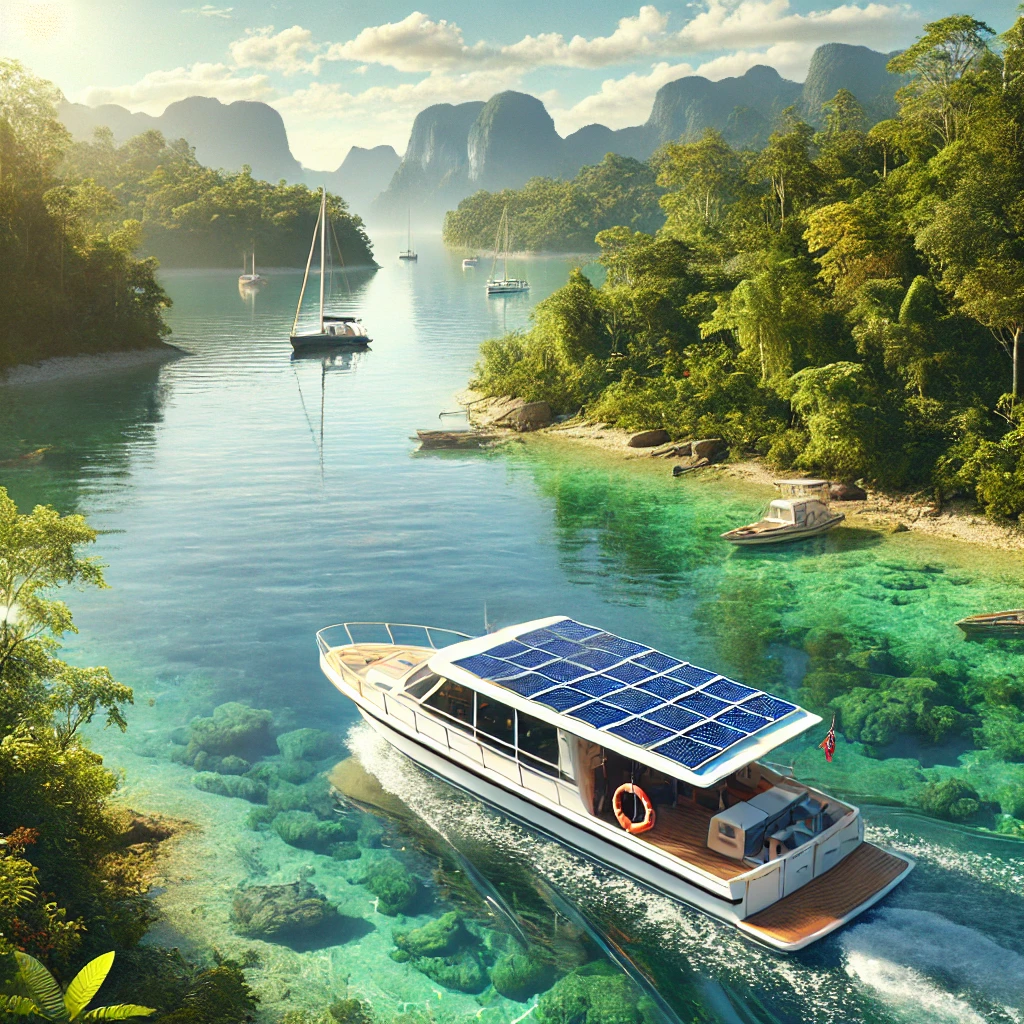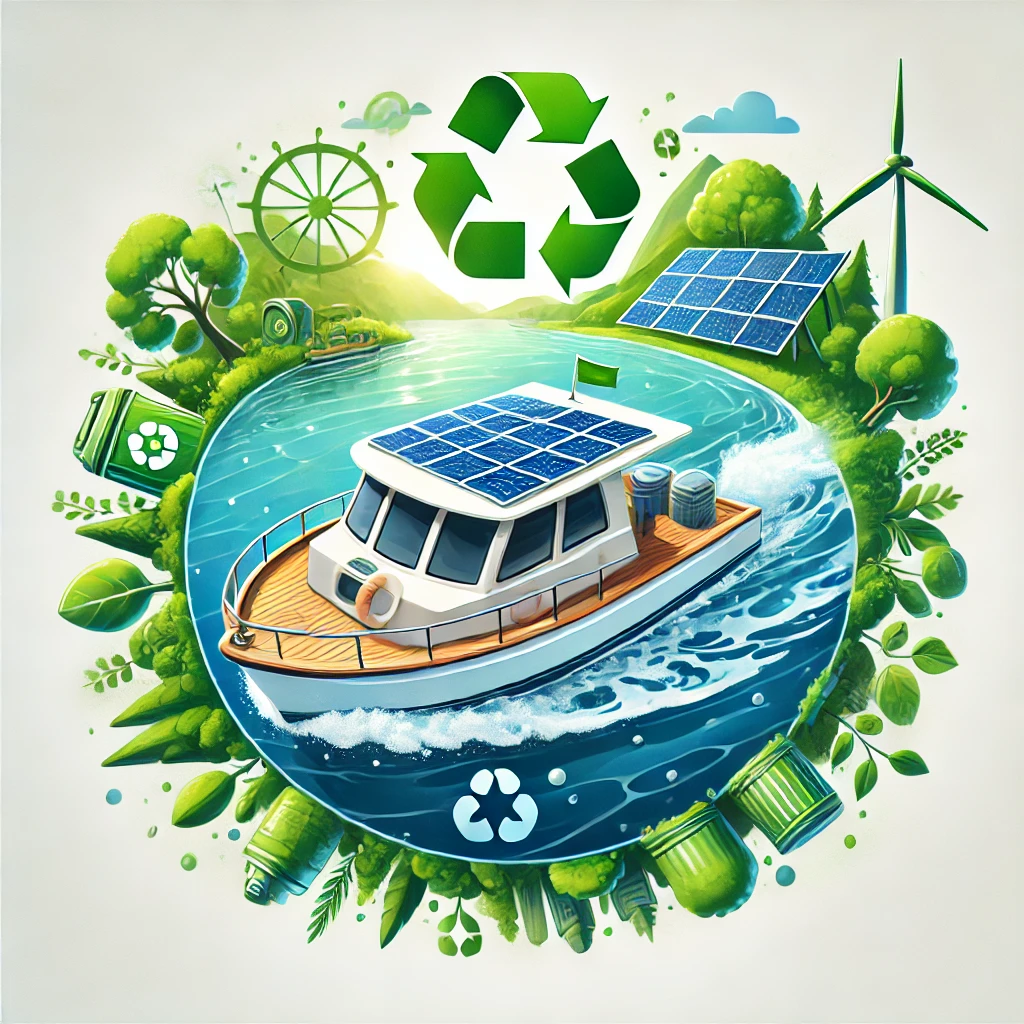Join The Fastest Growing Boating Community! - Sign Up Free Now!
Eco-Friendly Boating: How to Reduce Your Impact on the Waterways


As boaters, we have the privilege of enjoying the beauty of our lakes, rivers, and oceans, but with that comes the responsibility to protect these natural environments. Eco-friendly boating is more than a trend—it’s an important part of ensuring that our waterways remain clean and healthy for future generations. Whether you’re an avid boater or just getting started, there are numerous ways you can reduce your environmental impact while still enjoying life on the water. In this guide, we’ll explore how to embrace eco-friendly boating practices that help preserve the waters you love.
1. Choose Fuel-Efficient and Low-Emission Engines
One of the biggest ways to reduce your environmental footprint is by opting for a fuel-efficient or low-emission engine for your boat. Traditional gasoline engines can release harmful pollutants into the air and water, contributing to environmental degradation. Consider upgrading to a four-stroke engine or an electric motor, both of which are cleaner and more efficient than older two-stroke engines.
Electric motors, in particular, produce no emissions and run quietly, making them an excellent choice for eco-conscious boaters. Not only do they reduce your carbon footprint, but they also contribute to a more peaceful and enjoyable boating experience by minimizing noise pollution.
2. Practice Responsible Refueling
Accidental spills while refueling can have devastating effects on marine life and water quality. When refueling your boat, take precautions to avoid spills. Always use an absorbent pad or fuel nozzle that catches drips, and never overfill your tank. Avoid refueling directly on the water if possible; instead, refuel on land at a marina equipped to handle fuel spills safely.
Additionally, when you clean your engine or bilge, avoid using products that contain harmful chemicals. Biodegradable, non-toxic cleaners are a great alternative that won’t harm marine ecosystems.
3. Reduce Your Plastic Use
Plastic pollution is one of the biggest threats to our waterways, with countless tons of plastic waste ending up in the ocean every year. As a boater, you can help reduce this impact by minimizing your plastic use. Start by eliminating single-use plastics, such as disposable water bottles, utensils, and packaging, when you’re out on the water. Instead, bring reusable containers, water bottles, and eco-friendly alternatives like bamboo utensils.
If you’re fishing, ensure that all lines, nets, and hooks are properly stored and disposed of, as lost or discarded fishing gear can entangle marine life and degrade water quality. Monofilament recycling programs are available at many marinas to safely recycle fishing lines, keeping them out of the water.
4. Practice “Leave No Trace” Principles
“Leave No Trace” is a simple yet effective philosophy that applies to eco-friendly boating. It encourages boaters to minimize their impact on the environment by leaving the areas they visit exactly as they found them. This means collecting all trash and disposing of it properly, even if it isn’t yours. Never discard garbage, food waste, or fishing gear into the water, and ensure all waste is taken back to shore for disposal or recycling.
If you anchor overnight, avoid sensitive habitats like seagrass beds and coral reefs, which can be damaged by anchors. Use designated mooring buoys instead of dropping anchor in fragile environments. By following these practices, you help maintain the health of aquatic ecosystems.
5. Use Environmentally Friendly Cleaning Products
Many traditional boat cleaning products contain harsh chemicals that can leach into the water and harm marine life. When cleaning your boat, opt for biodegradable, non-toxic cleaners. These products are just as effective but don’t contribute to water pollution.
In addition, you can reduce the need for chemical cleaners by regularly washing your boat with fresh water and using natural cleaning methods like vinegar and baking soda. This approach helps prevent the buildup of dirt and grime while minimizing your reliance on harmful substances.
6. Manage Wastewater Properly
Boats with onboard toilets (marine heads) and other plumbing systems must follow proper wastewater disposal practices. Never discharge untreated sewage into the water—it’s not only harmful to marine life, but also illegal in most areas. Instead, use pump-out stations at marinas to empty your holding tank, ensuring that waste is disposed of in a way that doesn’t pollute the water.
For greywater (from sinks and showers), minimize soap usage and choose biodegradable soaps that won’t introduce harmful chemicals into the water. Being mindful of what goes down the drain helps protect aquatic ecosystems from unnecessary contamination.
7. Respect Marine Wildlife
One of the greatest joys of boating is witnessing marine wildlife in their natural habitat, but it’s important to observe these creatures responsibly. Always keep a respectful distance from wildlife, particularly from protected species like dolphins, sea turtles, and manatees. Getting too close can disrupt their natural behaviors and increase the risk of injury from propellers.
When operating your boat in areas known for wildlife, slow down to minimize the risk of collisions, especially in no-wake zones. These zones are often put in place to protect fragile environments and reduce noise pollution that can disturb marine life.

8. Embrace Renewable Energy Solutions
More boaters are embracing renewable energy technologies to power their boats and reduce their reliance on fossil fuels. Solar panels are an excellent eco-friendly option, as they harness the sun’s energy to power onboard systems such as navigation equipment, lights, and refrigeration. Installing solar panels reduces fuel consumption and helps extend the life of your battery, making them a great long-term investment for eco-conscious boaters.
For sailing enthusiasts, wind power offers an efficient and environmentally friendly way to travel. By relying on the wind instead of an engine, sailboats have a naturally low environmental impact and offer a peaceful, fuel-free boating experience.
9. Be Mindful of Your Wake
Your boat’s wake can cause erosion along shorelines and disturb wildlife, particularly in shallow waters. To minimize this impact, reduce your speed in no-wake zones and areas with fragile habitats, such as marshes and estuaries. Boating at slower speeds not only protects the environment but also conserves fuel, further reducing your overall impact.
10. Spread the Word and Lead by Example
Finally, one of the most effective ways to promote eco-friendly boating is by leading by example. Share your knowledge of sustainable practices with fellow boaters, friends, and family. By encouraging others to adopt eco-friendly habits, you help protect waterways for future generations.
The more boaters who prioritize environmentally responsible behavior, the greater the impact we can make on preserving our oceans, rivers, and lakes.
Conclusion: Boating Sustainably for Future Generations
Eco-friendly boating is all about making small, thoughtful changes that have a big impact on the environment. By choosing fuel-efficient engines, reducing plastic use, practicing responsible refueling, and embracing renewable energy, you can enjoy your time on the water while protecting the ecosystems that make boating so special. Let’s work together to ensure that future generations of boaters can experience the beauty and freedom of our waterways just as we do today.
Keywords: eco-friendly boating, sustainable boating, reducing plastic waste on boats, fuel-efficient boat engines, green boating practices, clean boating tips, biodegradable cleaning products for boats, environmentally friendly boating, renewable energy for boats, protect marine wildlife, leave no trace boating
Comments (0)
Please log in to add a comment.